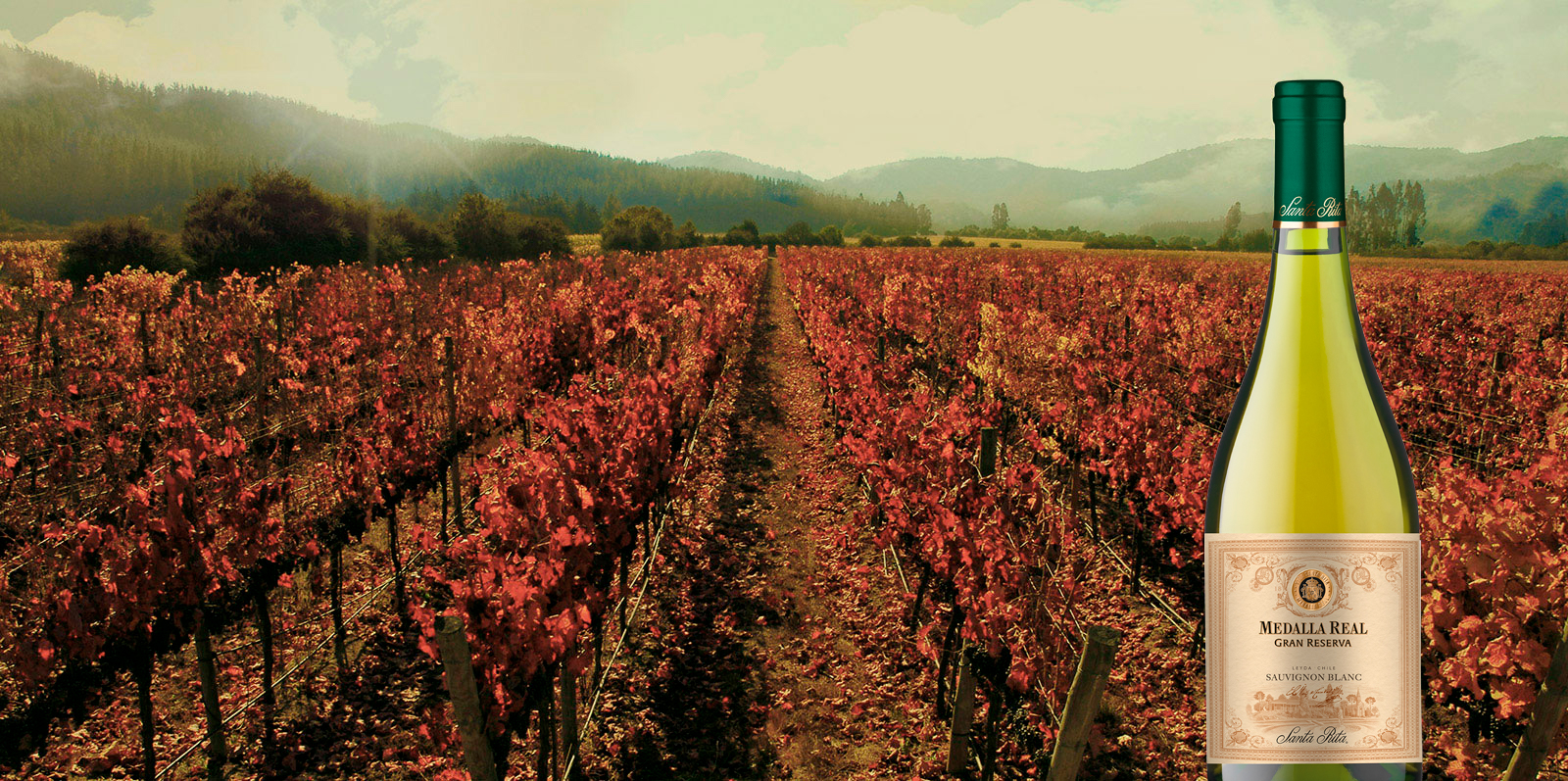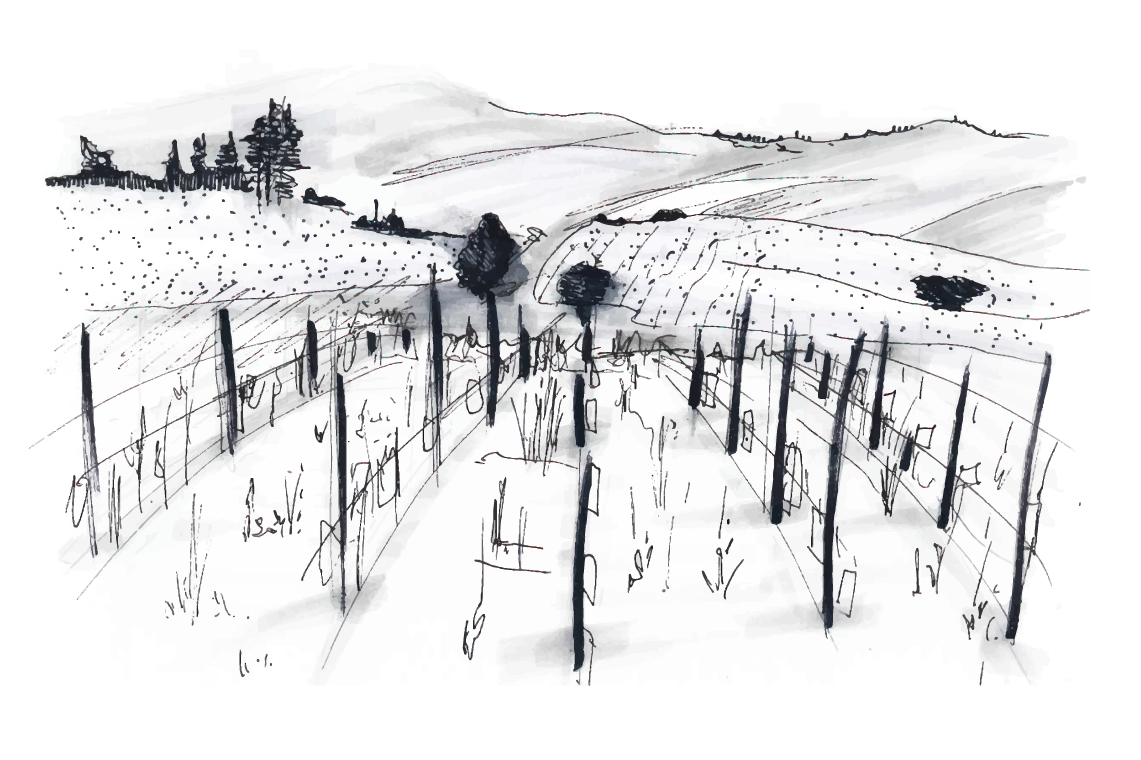
Medalla Real
Gran Reserva
Sauvignon Blanc
Medalla Real was born in 1983 in honor of Francisco García Huidobro, ancestor to the founding family of Viña Santa Rita and Marqués de Casa Real, who established the first Mint in Chile. To commemorate the Bicentennial of this event, a medal was coined with his profile and the symbol of the Spanish royal crown.
Trajectory and recognition of quality have been a fundamental part of this wine’s history, positioning it as one of the classic and representative brands of Viña Santa Rita.

Harvest
Technical details
Varieties 100% Sauvignon BlancpH: 3.21
Total Acidity: 7,5 g/l
Alcohol Content: 12,8 %v/v
Residual Sugar: 1,12 g/L
Winemaker's comment
This wine is brilliant greenish-yellow in color. The nose has intense and pure aromas of grapefruit, lime and citrus notes combined with the classic gooseberry and a distinctive mineral finish that is characteristic of the Leyda Valley. Elegant and delicate, this is a tremendously balanced wine with vibrant acidity that spreads over the palate as it develops its fruity components and delivers its long fruit-driven finish.

Climate and soil
Santa Rita Leyda´s vineyard has a cold Mediterranean climate, strongly influenced from its proximity to the Pacific Ocean. The Ocean acts like a buffer providing lower maximum and higher minimums temperatures. The rains are concentrated during the winter and the spring is mild, summer could change from cloudy and mild to sunny and windy. On average, Leyda has less than 1100 GDD being ideal for varieties like Pinot noir and Sauvignon Blanc.
Soils are mainly from granitic origin showing different status of alteration from pure fractured granite to decomposed granite based soils. Most of this is soils lay over old alluvial terraces . The clay content could vary from very low to higher concentration in the lower sites. For this wine the selected blocks are planted on the top of the rolling hills having good drainage with ideal water retention.
Vinification
Grapes were machine harvested in late March, depending on the maturation level in order to obtain different varietal compounds. The grapes were quickly transported to the winery for processing; maceration takes places during the transportation from the vineyard to the winery. The grapes are pressed (neumatic press) with open valves where free run and press juices were separated by tasting. The juice obtained was decanted for 48 hours, during which it takes its varietal character from the solid parts, which lend complexity to the finished wine. The wine ferments in stainless steel tanks at temperatures of 14-16°C. Once the fermentation is finished the wines are kept over its lees for 6-8 months to develop more mouthfleel maintain vibrancy.
Aging
5 to 8 years.
Technical details
Varieties 100% Sauvignon BlancpH: 3.34
Total Acidity: 7.0 g/l
Alcohol Content: 13.6% v/v
Residual Sugar: 1.30 g/l
Expert opinion
(Best Buy) The scent of nori and the refreshing feel of sea spray place this wine on Chile's far coast. That coolness and clarity is infused with supple blanched-almond and peach flavors and sharper notes of bell pepper and bitter florals. It's a wine for carnitas tacos with cilantro and lime.
91
Wine & SpiritsDecember 2019
Winemaker's comment
This wine is brilliant greenish-yellow in color. The nose has intense great fruit expression of grapefruit, lime and citrus notes combined with the classic gooseberry and the distinctly mineral finish that is characteristic of the Leyda Valley. Elegant and compact, this is a tremendously balanced wine with vibrant acidity that spreads over the palate as it develops its fruity components and delivers its long fruit-driven finish.

Climate and soil
Santa Rita Leyda´s vineyard has a cold Mediterranean climate, strongly influenced from its proximity to the Pacific Ocean. The Ocean acts like a buffer providing lower maximum and higher minimums temperatures. The rains are concentrated during the winter and the spring is mild, summer could change from cloudy and mild to sunny and windy. On average, Leyda has less than 1100 GDD being ideal for varieties like Pinot noir and Sauvignon Blanc
Soils are mainly from granitic origin showing different status of alteration from pure fractured granite to granite based soils. The clay content could vary from very low to higher concentration in the lower sites. For this wine the selected blocks are planted on the top of the rolling hills having good drainage with ideal water retention.
Vinification
Grapes were machine harvested in late March, depending on the maturation level in order to obtain different varietal compounds. The grapes were quickly transported to the winery for processing; maceration takes places during the transportation from the vineyard to the winery. The grapes are pressed (neumatic press) with open valves where free run and press juices were separated by tasting. The juice obtained was decanted for 48 hours, during which it takes its varietal character from the solid parts, which lend complexity to the finished wine. The wine ferments in stainless steel tanks at temperatures of 14-16°C. Once the fermentation is finished the wines are kept over its lees for 6-8 months to develop more mouthfleel maintain vibrancy.
Aging
5 to 8 years.
Terroir
Valley
Leyda
Varieties
Sauvignon Blanc y Pinot Noir
Weather
The Leyda Valley is influenced by the sea breeze and morning fog. It has a Mediterranean climate, with low temperatures due to its proximity to the ocean. The average annual temperature is 14.2ºC (58ºF), with annual precipitation of 471 mm.
Soil and surface
Its soil has good drainage, with a fine, sandy clay texture and adequate permeability. This leads to vineyards with low yield and high varietal concentration.

Extranjeros no residentes en Chile, por favor reservar en moneda dólar.
Non-resident foreigners in Chile, please book in dolar currency.
**Mayor información, ver términos y condiciones de la reserva**
**More Info, please see booking terms and conditions**


